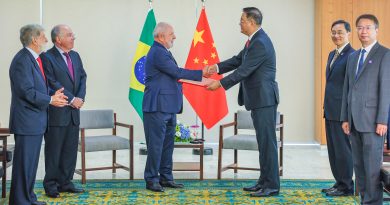Putin Denounces Lenin But Upholds Stalin
By Matthew Schaller
Staff Writer
Russian President Vladimir Putin’s recent denouncement of the father of communism, Vladimir Lenin, has been described by many as his strongest to date, according to USA Today. Coincidentally, the statement fell on the 92nd anniversary of Lenin’s death.
Putin’s appraisal of Lenin’s role in Russia’s turbulent history came during a meeting with pro-Kremlin supporters in the southern industrial city of Stavropol on January 25.
In response to an audience question, the Kremlin leader stated, “Letting your rule be guided by thoughts is right, but only when that idea leads to the right results, not like it did with Vladimir Ilyich.”
Putin went on to say that such a mentality led “to the fall of the Soviet Union.”
In addition to a handful of other comments pertaining to Lenin, including criticism against the concept of federative states with the right to secede and Russia’s defeat in World War I, Putin’s pattern of criticizing Lenin follows a distinct pattern where all threads eventually lead back to one man: Joseph Stalin.
According to Foreign Policy, Stalin’s cult of personality has become a staple in daily Russian life: there are countless museums erected in his name, and the Russian city of Penza decided to go one step further by creating the “Stalin Center,” with an aim of implementing “the practices that were in use during Stalin times and are still relevant today.”
President Putin realized that public opinion after his fraudulent re-election in 2012 was not in his favor. So he changed face, and the result is typical of a country with a siege mentality: the threat of an American conspiracy orchestrated by the CIA, the nuisance of NGOs, and the vilification of homosexuals.
The threat came close to home at the conclusion of 2014 with the ousting of Ukraine’s pro-Putin president Viktor Yanukovych and subsequent unrest. As a result, the President decided to unveil his Stalinist playbook, drawing similarities of emotional undercurrents between the “Great Patriotic War” and the present.
So far, it seems to be working, with recent polls stating that about 34 percent of Russians agree that under Stalin’s leadership, “Russia was victorious in World War II.” In addition, Sergei Chapnin, the former editor of the Russian Orthodox Church’s official publication stated that, “Russia won the war under his guidance. It’s as though that makes up for his crimes.”
All in all, the strongman has set sail in a clear direction and the Russian people are willing to go along for the ride. With the President’s proclivity for free reign firmly established, the Russian public is ready to stand by their leader in whatever he decides.
In Stavropol, Putin described a “time bomb under the structure of our state system,” which ultimately resulted in the collapse of the Soviet Union. Obviously placing the blame on Lenin, he urged caution in repeating mistakes of the past and stated, “When you start thinking about this, you judge differently.”
Everyone knows what the respective demises of Lenin and Stalin created, and as we progress into 2016, Russian President Vladimir Putin may find out that it works both ways.

